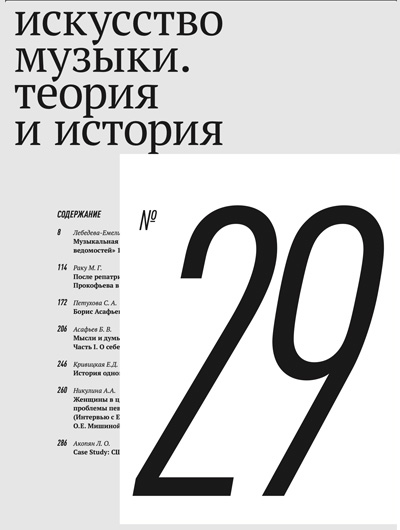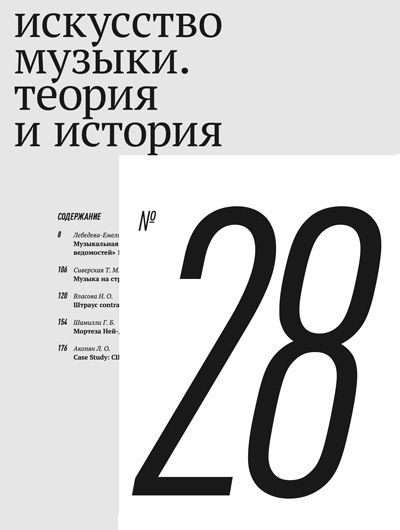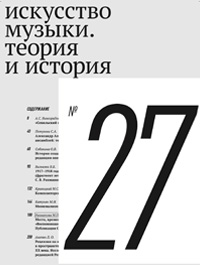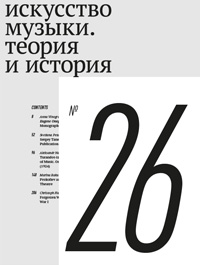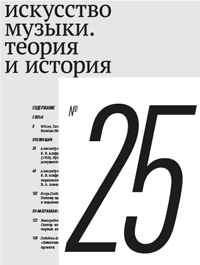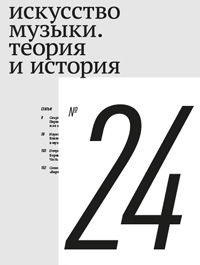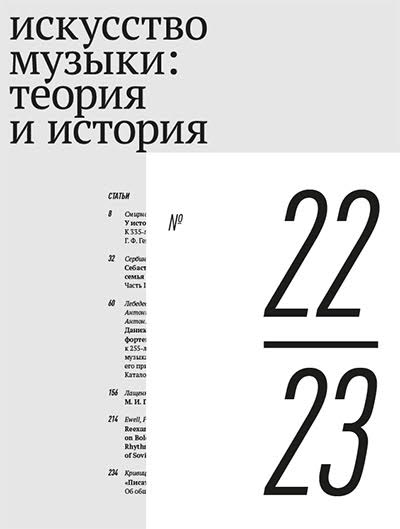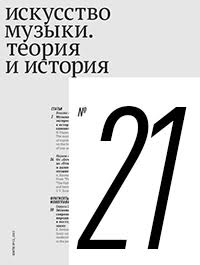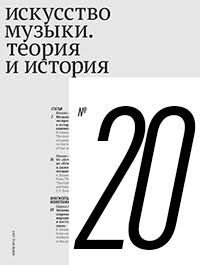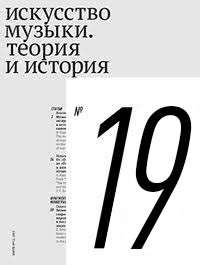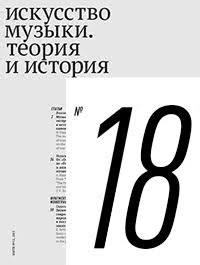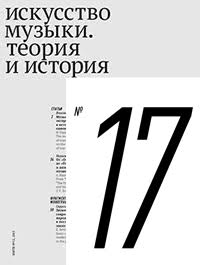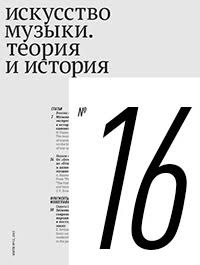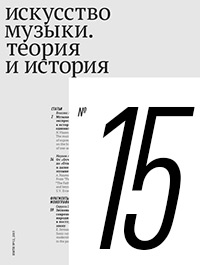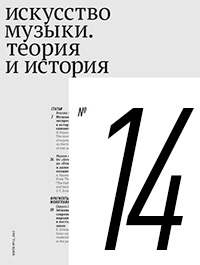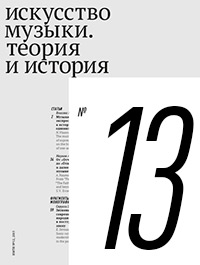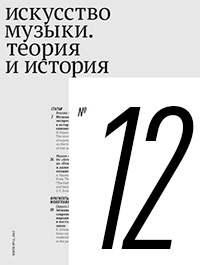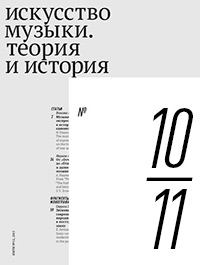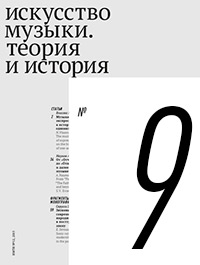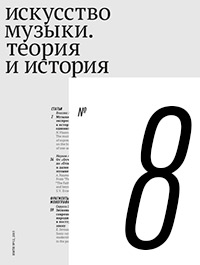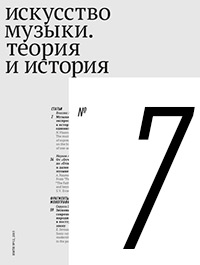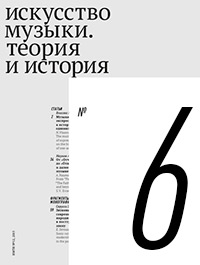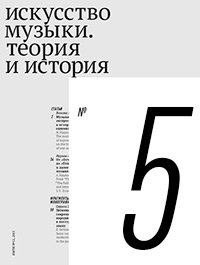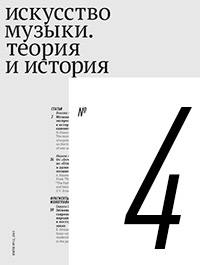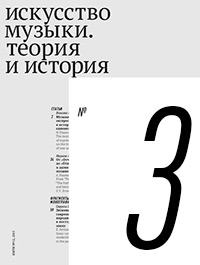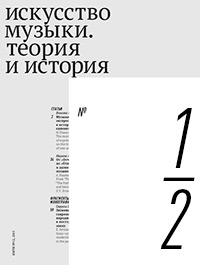2017 ¹ 16
The present issue opens with articles related to the 125th anniversary of Sergey Prokofiev’s birth. The Prokofiev materials have been presented by our colleagues from the Princeton University (USA). The issue contains several items in foreign languages: the Prokofiev-related articles by S. Morrison and J. Khait, the presentation of the collection of articles by I. Sollertinsky edited by S. Manzoni and published in Italy, M. Katunian’s article on Nikolay Sidelnikov’s school of composition. The essay by the great 20th century music scholar C. Dahlhaus on Wagner’s theatre is for the first time published in Russian translation. Thus, the journal’s editorial board strives to make it truly international, to consolidate its position in a global context. The section ‘Excerpts from future books’ is represented by L. Hakobian’s chapter ‘Euphony and Paraphony in New Music’, while the section ‘Reviews’ – by M. Rakhmanova’s survey of the composers’ biographies published recently in the series ‘Life of Outstanding People’. L. Korabel’nikova begins to publish an annotated catalogue of the articles on music that appeared in the press of the Russian diaspora during the first half of the 1920s.
This article looks at how censorship affected Prokofiev’s later Soviet works and in certain instances concealed his creative intentions. In the first half I discuss the changes imposed on his three Soviet ballets; in the second half I consider his little-known, pre-Soviet Things in Themselves and what these two piano pieces reveal about his creative outlook in general. I also address his Eighth Piano Sonata in this context. Prokofiev, I argue, thought of his music as abstract, pure, even when he attached it to words and choreographies. A new Prokofiev critical edition would peel away the layers of censorship to ascertain how his original thoughts changed, under different kinds of influence. This is more than a question of historical fidelity, but instead a matter of aesthetic urgency, one that relates to the Prokofiev celebrations held last year across the Russian Federation and elsewhere in 2016.
From the very beginning of his operatic career Sergey Prokofiev positioned himself as a proponent of through-composed opera, uninterrupted plot development, and blurring of traditional division between aria and recitative. In this sense Betrothal in a Monastery (1940) represents an interesting exception in Prokofiev’s operatic oeuvre. Along with a typical opera buffa plot, the composer adopted some of the stylistic features of the eighteenth-century opera. By giving a semiotic analysis of the operatic mode of utterance, I aim to uncover the appropriate range of meaning associated with the part of each character. Prokofiev’s approach to the operatic singing as old-fashioned, unnatural, and conventionalized allows to view this opera as a sort of musical manifesto of his operatic credo.
Nikolay Sidelnikov (1930 – 1992) was one of the leading composition teachers at the Moscow Conservatoire; his pupils include a number of the most noteworthy Moscow composers representing various stylistic directions. The phenomenon of Sidelnikov’s school has not been explored yet. His pedagogical method has been called unique. The present article makes an attempt at analyzing wherein lies Sidelnikov’s unique methodology of teaching the theory and practice of composition.
The present text is an excerpt from the large work in progress, provisionally entitled Theoretical Foundations of the New Music: from Debussy and Schoenberg to Our Days. Studying some stylistically heterogeneous phenomena of the music of recent past, we have come to conclusion that there are good reasons to include the notion of euphony and its antonym, here termed ‘paraphony’, in the contemporary music-theoretical lexicon. Both notions can be useful as categories, characterizing something essential for an important part of new music and defying adequate description by means of more traditional methodology and terminology.
This annotated translation of the article by the great German scholar Carl Dahlhaus (1928–1989) is to be published in the collection of his selected articles on music history and theory, translated and commented by Stepan Naumovich (St Petersburg: N. I. Novikov publishers). Dahlhaus’s last Wagner-related article is especially rich in fascinating turns of the author’s thought and in unexpected perspectives on the seemingly well-known music-historical material. This makes the translation of Dahlhaus’s work especially important for Russian “Wagneriana” and, more generally, for the opera-related scholarship in Russia.
The present publication of the catalogue of materials from the Russian-language Belgrade newspaper Novoe vremya (‘New Time’) of 1922 opens the project ‘Writing on Music in Russian Diaspora: an Annotated Catalogue of Articles Published by Russian-Language Press Abroad’.
